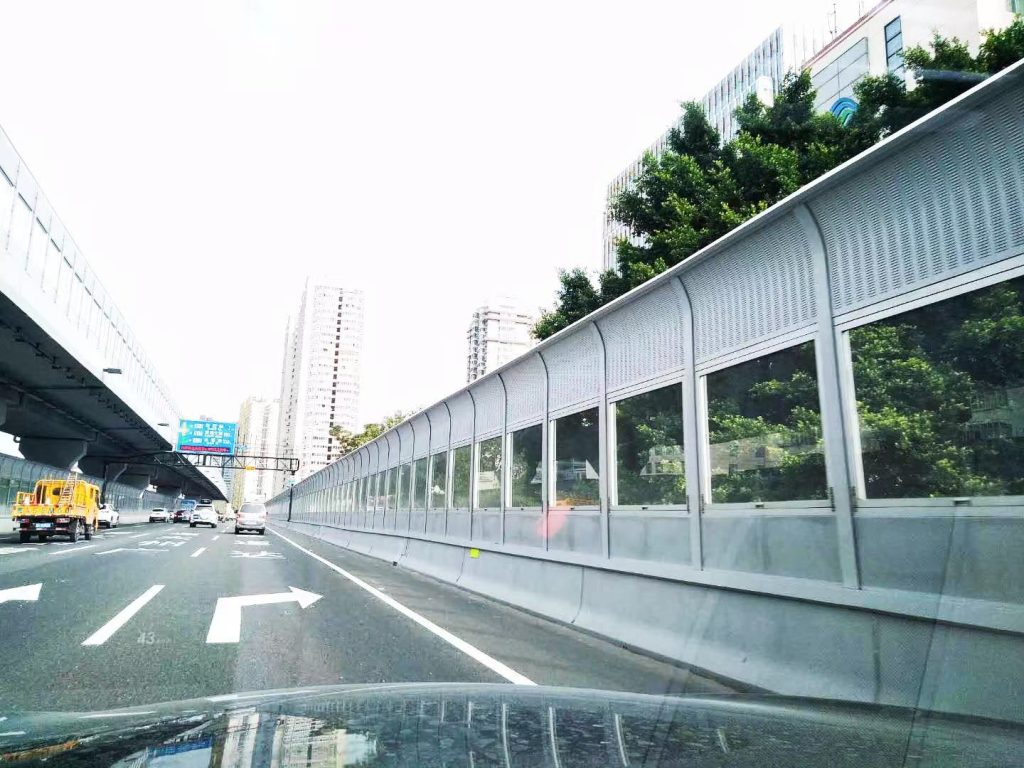
Intro
The growth and development of cities brings with it an increase in the number of vehicles, which not only translates into more pollution but also increases the level of noise and sound pollution, which disturbs the quality of life of its inhabitants. How to reduce the amount of noise? What is the best sound barrier insulation option?
Polycarbonate panels have become the preferred choice of contractors and suppliers for a highway noise barrier; today, we tell you why this material is an option.
Let’s dive in!
1. What are sound barriers?
Sound barriers are panels or structures installed outdoors to reduce noise pollution generated by vehicular traffic, industrial activities, machinery use, or others, which can reach 80 dB. How do they do it? These panels can absorb sound and eliminate the discomfort and possible hearing damage caused to the population.
2. What are polycarbonate panels?
Polycarbonate is a thermoplastic product of the reaction of phosgene and bisphenol; it is a relatively soft material with a 1.2 g/cm3 density. It is generally marketed in transparent sheets, composed of a multilayer system, which makes it practically unbreakable; since it can withstand impacts 200 times more than glass and eight times more than PVC plates, it does not crack, chip, or break easily.
In addition, polycarbonate sheets are excellent thermal insulators. The standard classifies them as B-s1-d0, making them safe for use in public spaces. Unlike other plastics, it does not warp under high temperatures and continuous exposure to UV rays.
Polycarbonate panels stand out for their high transparency, allowing 95% light transmission and not affecting passers-by’s enjoyment of the natural landscape.
3. How are polycarbonate panels good sound barrier insulation?
Polycarbonate sheets can reduce noise from vehicular and train traffic by 50%, often ranging from 60-70 dB.
However, polycarbonate can reduce noise by 30-40 dB, which no longer causes hearing damage, creating a unique layer of protection for residents and visitors to the area who can enjoy daily activities and even better nights of sleep without being disturbed by constant noise.
4. What form does polycarbonate come in?
Polycarbonate panels come in two presentations, cellular and compact, with flat and corrugated versions, with a variation in thickness from 1.5 mm to 30 mm, in different dimensions and colors. In addition, due to their composition, these sheets are anti-fogging, so they are not affected by water condensation when it rains and, therefore, do not limit the view of drivers or residents.
5. How long do polycarbonate panels last?
Due to their high resistance to impact and weathering, they can last between 15 and 20 years.
Conclusion
Polycarbonate panels are a novel option for sound barrier insulation, not only because of their durability and resistance to the passage of time and temperature changes during the seasons but also because it is a lightweight material, easy to install, and can mitigate the effects of noise pollution from road traffic, without affecting its aesthetics, nor involving higher costs as with concrete.
Do you want to know more about polycarbonate sheets? Do you have any questions?
